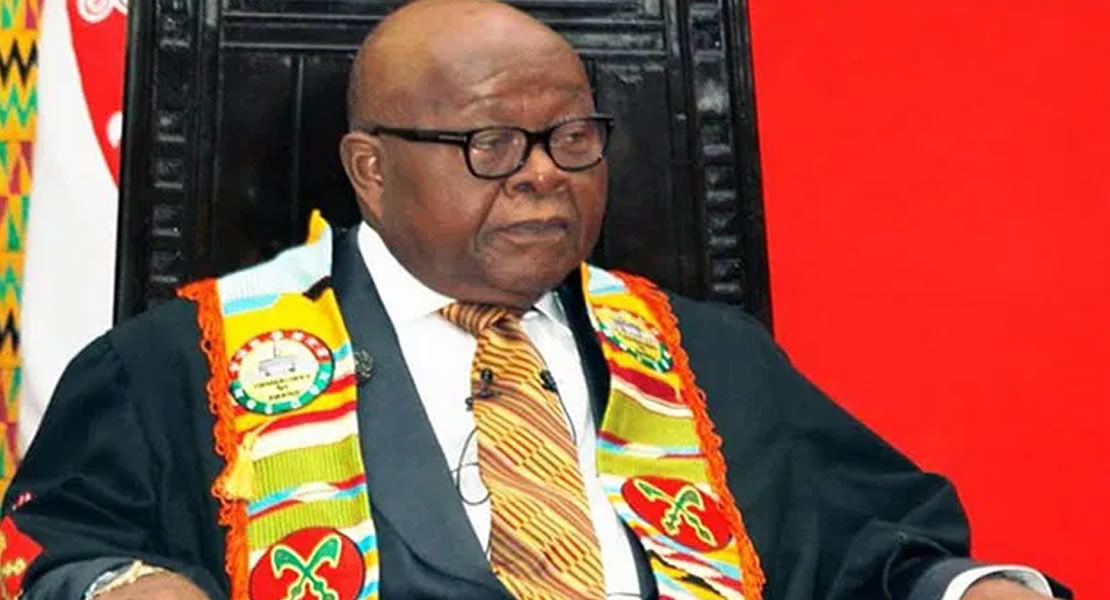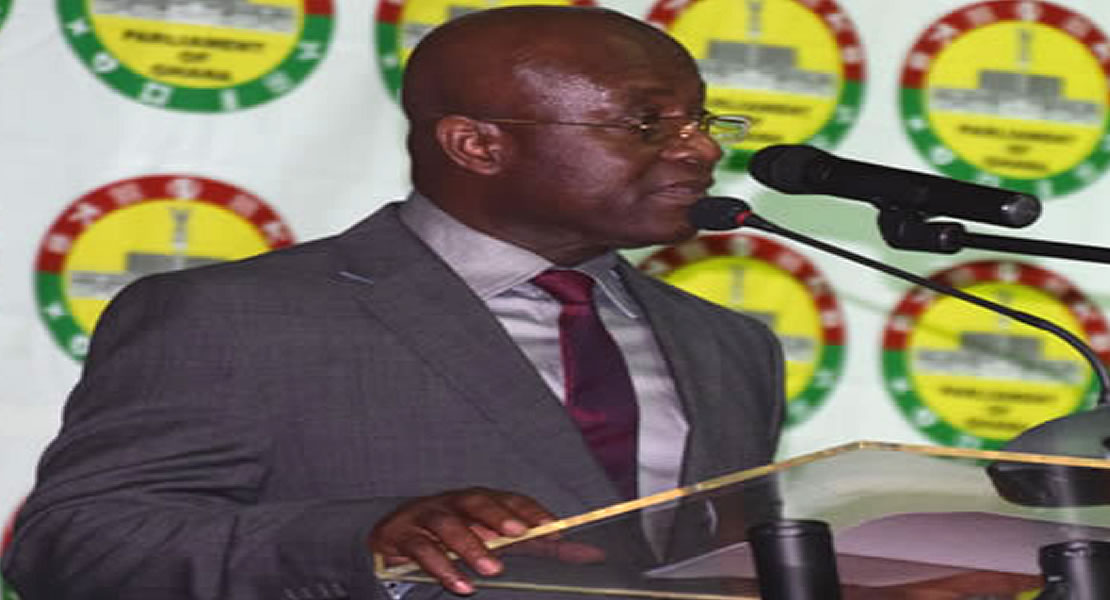Speaker of Parliament Professor Aaron Michael Oquaye has inaugurated a four-member Advisory Committee to the Parliamentary Training Institute (PTI) to cater for the training needs of Members of Parliament and staffs of the Parliamentary Service on Friday 28th February 2020.
The Institute would also serve as a centre of legislative excellence, train newly elected Members of Parliament (MPs), and offer periodic training to continuing MPs, staffs of Parliament and Metropolitan, Municipal, and District Assemblies (MMDA’s) as well as staffs of sister African Parliaments.
The Committee which was inaugurated on Friday February 28, 2020, comprised Dr. Rasheed Dramani, Director of the African Center for Parliamentary Affairs and Dr. Maame A.A. Gyekye-Jandoh, Head of Political Science Department of University of Ghana, Legon.
Others are Professor Stephen Adei, former Rector of the Ghana Institute of Management and Public Administration (GIMPA) and Professor Henry Kwasi Prempeh, the Executive Director of the Center for Democratic Governance-Ghana (CDD) complete membership of the Committee.

Their functions are similar to those of a University Council which has the ultimate power and authority in recommending standards for the achievement of the Institute’s goals as well as directing the highest academic standards of teaching, learning and research.
Speaker in his welcome address explained that the idea of establishing the Advisory Committee is to have an Advisory Board which would direct the PTI with regards to its intellectual goals, so that it can continue to be attached to academia and raise its global status and conceptualise the framework for the realisation of its objectives.
He said he expected the Committee to advice on the selection of the Director and the various positions similar to a Registrar of a University and other allied issues so that there would be a strong academic approach to all activities that the Institute is engaged in.
The Speaker stressed on research and lamented that research work in the country is not good enough and grieved that even doctoral students find it difficult to proceed on research on aspects of Parliament efficaciously due to inadequate documentation.
He said he was optimistic products of the Institute would contribute effectively to national development while the Institute will also serve as both a Resource Centre and Centre of Excellence for students and researchers from the various research institutions and the universities.
The Rt. Hon. Speaker disclosed that Ghana can boast of world class universities and think-tanks with international recognition such as University of Ghana, GIMPA, Kwame Nkrumah University of Science and Technology (KNUST), the Institute of Economic Affairs, Ghana (IEA) and CDD-Ghana among the many reputable institutions of higher learning.
He therefore urged the Committee to help identify the appropriate affiliate university or institution among these established universities and think-tanks because, as he noted, certificates or degrees whether Diplomas, Bachelors, Masters, Postgraduate, Doctor of Philosophy without a linkage are of no use.
And gave assurance that the Institute’s doors would be opened to everybody, home and abroad, who is interested in parliamentary or legislative and governance studies, to develop his or her potential through the Institute’s rich source of political analysis and administration.

The learned University Professor promised that the Parliamentary Service Board (PSB) will work closely with the Committee and give it all the needed cooperation, and made it clear that the Board was not going to set marching orders or interfere with activities of the Advisory Board.
He expressed his regret that Parliament is the institution that ceases to exist during coup d’états and therefore gave the assurance that the PTI will offer the highest standard of educational exposure to staff of the Service in a well-resourced intellectual manner and award them accredited degrees so that when they leave Parliament, they can also take up some positions anywhere.
In a related development, the Majority Leader, Osei Kyei-Mensah-Bonsu acknowledged that research has indicated that Parliament is recognised as the weakest among the three arms of government with continuous declining of the quality of work and debate in the House over the years since 1993.
He, however, hinted that the Institute would be used as a vehicle to reposition Parliament and to build the capacity of Members and also assist in building the capacity of the MMDCEs as well as those at the lower levels of governance.
The Suame MP tasked the Committee to design programmes to build capacity of Members in their responsibility of representation including the deliberative function of Parliament, information transmission, legislation and financial control oversight, which arguably, is the greatest function of Parliament.
Kwaku Sakyi-Danso/ghanamps.com